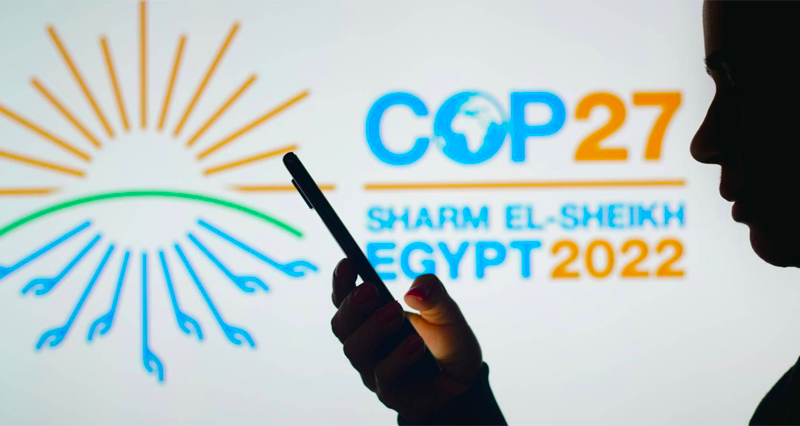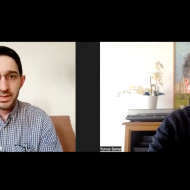Reporting from Cairo / Egypt
The organizers of COP27 in Sharm El-Sheikh, Egypt, succeeded in achieving the greatest gain for developing and poor countries by imposing the inclusion of the right to compensation for losses and damages caused by climate change on the official agenda of the conference.
Although the hope for a tangible achievement during this version of the COP is wishful thinking, the mere inclusion of the issue for discussion in the face of reluctance from developed countries, represents a great victory for African and Latin American countries.
Conflicting views
The major industrial countries were rejecting separate compensation for the damages caused to the countries of the two continents, claiming that the funds dedicated to financing adaptation and mitigating the negative consequences of climate change are too sufficient.
Egypt, the African bloc and some South American countries are calling for the establishment of a financing fund dedicated to compensation, in addition to urging the developed countries to fulfill their promises to pay $100 billion annually to finance adaptation and mitigation.
The developed countries want to evade all this and only to pay sums to finance adaptation, while mitigating the negative effects with non-refundable grants and soft loans.
Shifting the focus
According to an Egyptian government source familiar with the discussions, the bloc of developing countries, including Egypt, lobbied hard to discuss the issue of losses and compensation.
“Egypt and the developing countries succeeded in shifting the focus of negotiations and discussions from carbon neutrality and emphasizing the commitment of industrialized countries to limit temperature rise within the framework of the Paris Agreement on Climate Change, to focus on the issue of compensation payments”, he said.
The source pointed out that the current version of the conference may not succeed in achieving a tangible achievement in this matter, but the train of the right to compensation started from its first station and no one will be able to stop it.
“In all upcoming conferences, there will be more in-depth discussions related to compensation for the countries that have been affected and which will be harmed in the future due to the practices of the developed countries”, he added.
Ambiguous concept
According to a second informed source, the importance of including the issue of compensation for losses and damages lies in the existence of repercussions of climate change that cannot be avoided through mitigation or adaptation efforts, as it can result from sudden factors such as hurricanes, heat waves and floods, or slow-appearing factors such as sea level rise, increasing temperatures and desertification.
The source pointed out that there are two types of damage that may occur as a result of climate change, the first is irreparable damage, such as the loss of land due to sea level rise or the loss of fresh water resources due to desertification. There are repairable damages such as coastal receding or infrastructure damage linked to climate change.
“At the same time, there are two types of losses, economic and non-economic”, he said.
“Economic losses such as the loss of resources, goods and services that are commonly traded in markets such as agricultural production, infrastructure or property. Non-economic losses are those that can affect individuals, society or the environment, such as the loss of life, health, land, cultural heritage and identity, damage to indigenous peoples, or the loss of biodiversity and entire ecosystems”, he added.
The source expected that discussions about the right of poor and developing countries to obtain compensation for losses and damages will take years, because the concept itself, although it is not new, is still vague and not well defined in climate policies.
The source explained that the ambiguity of the concept and the sharp difference in views between the most affected developing and developed countries, which are most responsible for the crisis, will prolong the discussions until this issue is resolved.
He pointed out that the divergence of views on the definition of losses and damages between the two parties will lead to wide areas of disagreement over compensation and its estimation.
A symbolic gain
The concept of damage and loss first appeared during the drafting of the United Nations Framework Convention on Climate Change in 1991, when the Alliance of Small Island States raised the importance of that concept, calling for the establishment of an insurance institution against losses and damages from rising sea level.
Although no reference is made to losses and damages in the final text of the United Nations Framework Convention on Climate Change, Article IV of the Convention referred to the need for insurance as a means to help developing countries address the adverse effects of climate change.
The damages and losses were then discussed for many years before being institutionalized only in 2013 during the 19th Climate Conference meetings, with the creation of the Warsaw International Mechanism for Loss and Damage, the objective of which was to promote the implementation of an approach to reducing losses and damages associated with climate change, recognizing that some damages are unavoidable.
A third source considered the inclusion of the issue of the right to compensation separately as a symbolic gain rather than a real one.
The source indicated that he does not believe that an achievement can be reached on this issue, especially since the financing of adaptation and mitigation mechanisms, which in principle do not receive much opposition from developed countries, still faces great difficulty in agreeing on it.
“How can the right to compensation for losses and damages be resolved before deciding the ways to finance adaptation and mitigation mechanisms?”, the source questioned.
Developed countries causing climate change claim that these mechanisms can be financed through existing climate funds, insurance schemes, humanitarian aid, or risk management. At the same time, many developing countries are calling for financial mechanisms specifically geared to adaptation and mitigation.
A new shift
From the creation of the Warsaw Mechanism in 2013 until the last climate conference, the issue of damage and loss was not included on official agenda of any COP, with conflicting interests marginalizing the issue and keeping it off the official negotiation agenda.
Although developing countries had hoped for a fund to finance loss and damage, consensus was not reached to put the matter on the official agenda, with the EU and other developed countries preferred to tackle the issue by strengthening existing arrangements and institutions.
The problem was exacerbated by the failure to fulfill financial promises that were estimated at $100 billion annually by 2020.
Although mitigation and adaptation financing is important in dealing with avoidable losses and damages, it does not eliminate the need for financing to address losses and damages that have already occurred or that cannot be avoided.
Therefore, the success of the current version of the COP in including the right to compensation in the discussion agenda represents a new shift in the course of the COPs.
The current version of the Conference of the Parties was not satisfied with such a gain, but also succeeded in changing the concept of climate change concerns to other aspects that did not receive such attention in the past, such as food security and water security.
COP 27 opened the discussion on the role of climate change in threatening food and water security in several regions of the world.
Arab and African regions are a model for this type of loss and damage.
Climate changes have caused irregular rainy seasons in areas whose agricultural production depends on rain-fed agriculture.









Leave a Reply